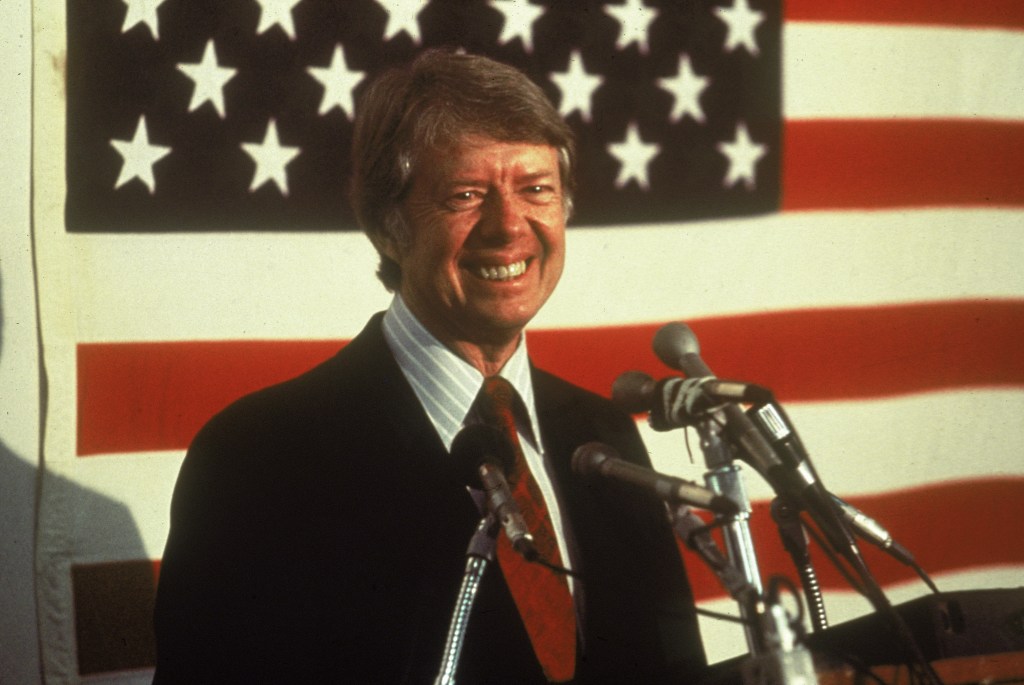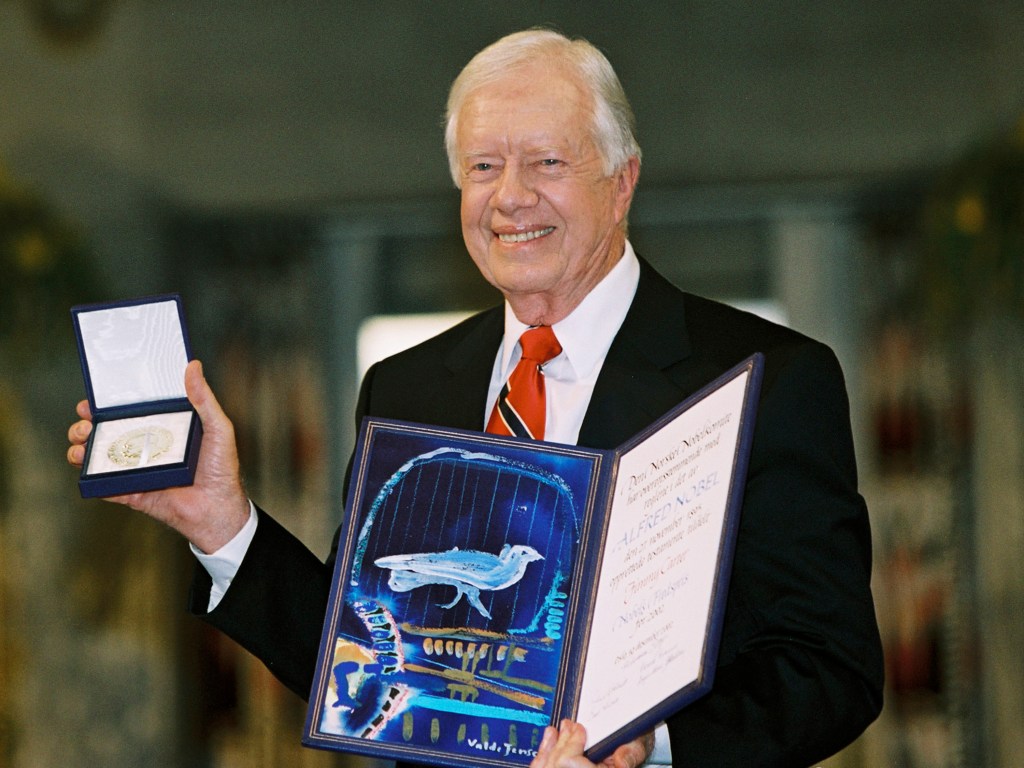Here’s what Jimmy Carter did for LGBTQ rights – including inviting gay activists to the White House

Former US president Jimmy Carter has died age 100 (Drew Angerer/Getty Images)
Former US president Jimmy Carter, who has died at the age of 100, will be remembered as an LGBTQ+ ally and advocate for peace, human rights and environmental issues.
The 39th president, who was in the White House for a single term between 1977 and 1981, died at his home in Plains, Georgia, on Sunday (29 December). His wife Rosalynn died in 2023.
Carter, a Democrat, was the longest-living president and is survived by his children Jack, Chip, Jeff and Amy, as well as 11 grandchildren and 14 great-grandchildren.
“My father was a hero, not only to me but to everyone who believes in peace, human rights and unselfish love,” Chip said in a statement published on The Carter Center. “My brothers, sister and I shared him with the rest of the world through these common beliefs.
“The world is our family because of the way he brought people together, and we thank you for honouring his memory by continuing to live these shared beliefs.”

President Joe Biden called Carter an “extraordinary leader, statesman, and humanitarian”, adding: “With his compassion and moral clarity, he worked to eradicate disease, forge peace, advance civil rights and human rights, promote free and fair elections, house the homeless, and always advocate for the least among us. He saved, lifted and changed the lives of people all across the globe.
“He was a man of great character and courage, hope and optimism. We will always cherish seeing him and Rosalynn together. He showed that we are great nation because we are a good people: decent and honourable, courageous and compassionate, humble and strong.”
President-elect Donald Trump said: “The challenges Jimmy faced as president came at a pivotal time for our country and he did everything in his power to improve the lives of all Americans. For that, we all owe him a debt of gratitude.”
President Jimmy Carter’s LGBTQ+ allyship
An evangelical Christian, Carter was socially liberal on a number of issues and spoke openly of his support for the queer community at a time when many politicians did not endorse LGBTQ+ rights.
In 1977, he lifted the foreign service’s ban on gay and lesbian personnel – a hang-over from the McCarthy-era of the 50s.
Although Carter was not at the meeting himself, his administration was the first to meet gay and lesbian activists at the White House. Members of the National Gay Task Force were invited in 1977 to discuss their dissatisfaction with the way they were treated by federal law. One person there, George Raya, focused on health issues and said hepatitis was affecting the community the most, with people dying at a high rate, with little or no support from the authorities.
The meeting brought about the formation of a hepatitis research project in San Francisco and, later, scientists were able to review data for use in HIV/Aids research.
The historic meeting was praised by Kierra Johnson, now the president of the National LGBTQ Task Force, for “creating change at the highest levels as well as the grassroots”.
However, it wasn’t all plain sailing. During his time in office, Carter backed down in the face of political criticism and, in 1980, caved in on issuing an executive order that would have banned anti-gay employment discrimination.

Although Carter’s presidency is viewed by many as unsuccessful overall, mainly because of a failing economy and the taking of hostages at the US embassy in Tehran, it is indisputable that his post-presidency years were the most accomplished of any former president.
He received the Nobel Peace Prize in 2002 for “for his decades of untiring effort to find peaceful solutions to international conflicts, to advance democracy and human rights, and to promote economic and social development”, including overseeing the historic peace agreement between Egypt and Israel.
Three years later, when asked why, as a Christian, he didn’t not view LGBTQ+ people negatively, Carter replied that Jesus “never mentioned homosexuals in any way, certainly not in a deleterious fashion.”
In 2015, following the Obergefell vs. Hodges Supreme Court ruling which brought marriage equality across the US, Carter spoke positively of the decision and said Jesus would have approved.
“I think Jesus would encourage any love affair if it was honest and sincere and was not damaging to anyone else,” he HuffPost Live. “I don’t see that gay marriage damages anyone else… I believe Jesus would approve. That’s just my personal opinion.”
Tributes to the former president have continued to flood in from human rights and LGBTQ+ groups.
Kelley Robinson, the president of the Human Rights Campaign, said: “All of us [here] feel an immense loss with the passing of former president Jimmy Carter. In recent years, he became a prominent voice in support of LGBTQ+ rights, speaking out for marriage equality at a time when most national leaders in the US still opposed it.
“For decades after he left the White House, he continued to make public service his enduring priority through his work with Habitat for Humanity and the Carter Presidential Center, cementing his reputation as a champion for human rights and as one of the all-time-great former presidents.
“We extend our deepest condolences to his family and all who mourn him.”
Share your thoughts! Let us know in the comments below, and remember to keep the conversation respectful.
How did this story make you feel?

